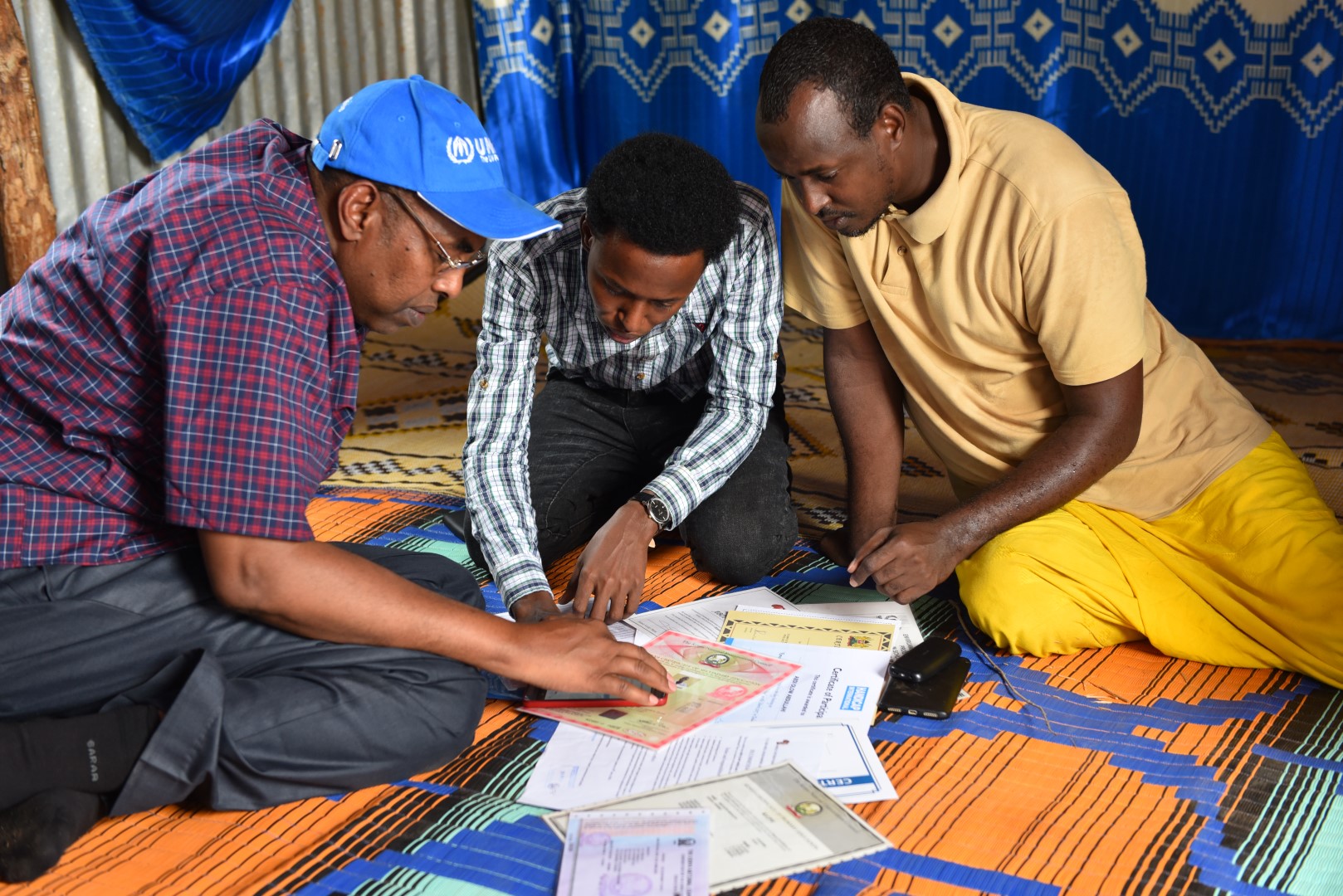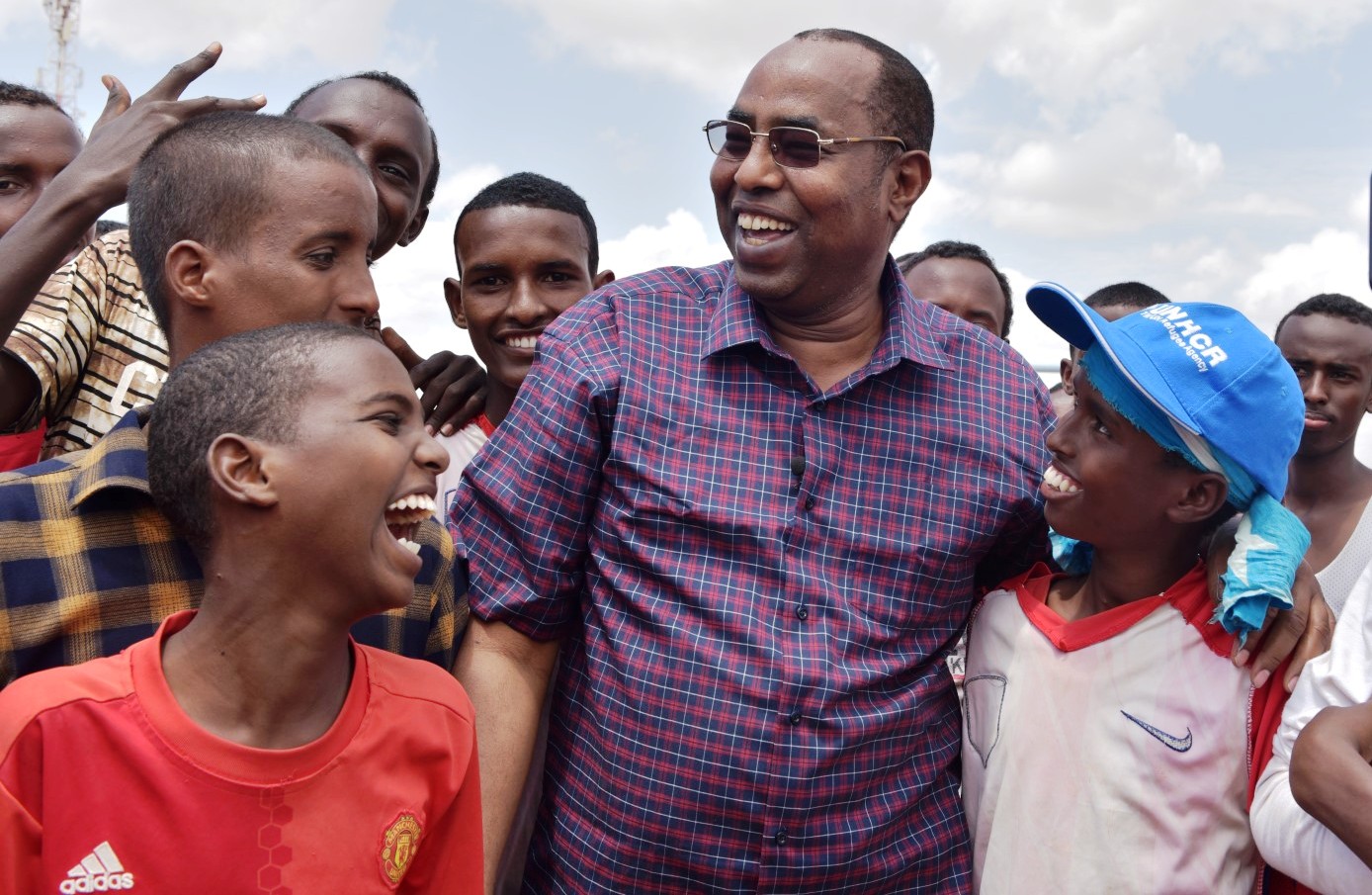UNHCR Special Envoy for the Horn of Africa motivates youth desperate for higher education in Dadaab
Ambassador Affey meets Somali refugee youth, to encourage and give them hope of a better future
Ambassador Affey listening to the aspirations, dreams, challenges and needs of refugee youth in Dadaab. ©UNHCR/A.Nasrullah
In his passionate drive to advocate for quality higher education for Somali refugees, UNHCR Special Envoy for the Horn of Africa, Ambassador Mohamed Affey, visited Dadaab Refugee Camps on 9th and 10th October 2018. He met with refugee youth some of who have completed secondary school, but they have had no access to higher education.
In his interactions with the youth, Ambassador Affey listened to their aspirations, dreams, challenges and needs. He encouraged them to remain positive and use their time in the refugee camps to engage in self-education as they aim for a brighter future.
“Education is the greatest equalizer in life.”
“The day you become educated, you will take care of yourself and your community. You will forget the pain of being a refugee,” Ambassador Affey told the youth.
He urged the refugees in the Dadaab camps to take advantage of the facilities that UNHCR and partner agencies have provided. He also reiterated the importance of advocacy to address key barriers to higher education for large number of Somali refugee students in Dadaab.
“We are here in Dadaab to do advocacy work for the international community and our partners for continued support to refugee education in Dadaab so that many more can get an opportunity to go to school, to transit from high school to university and from university to the job market around the world as responsible members of the global community,” the envoy said.

Ambassador Mohamed Affey looks at documents and certificates of 22-year-old, Abdi Abdullahi Olowa during a visit to his family house in Ifo camp of Dadaab. Abdi is among the youth who have completed secondary education but are yet to get opportunities to pursue higher education. © UNHCR/A.Nasrullah
Ambassador Affey appealed to the international community, private sector, Somali civil society and Somali business people, Somali government and NGO partners to scale up their support to create additional higher education scholarships for Somali refugees. He observed that education is a key driver in finding durable solutions for refugees in protracted refugee situations.
Sadik Ibrahim, a 26-year-old refugee from Somalia is one of the youth who completed his secondary education in 2016 and dreams of going to University. “I am doing voluntary community mobilization work and I also volunteer as a teacher in one of the primary schools,” says Sadik. “My dream is to be a politician and for that I want to study Business and Commerce so that I can understand how an office works.”
Having waited for two years for an opportunity to join university, Sadik has not given up. “I still have hope for change. The situation today does not determine my destiny,” he adds.
The youth in Dadaab remain expectant that the advocacy efforts by the Special Envoy will increase the number of scholarships programmes for higher education.
“The visit of Ambassador Affey to the camp has created a sense of hope among us.”
“This is the first time I am meeting with an Ambassador. I hope scholarships for refugees will somehow increase and I will have a chance to study,” an elated Sadik said.
In the past three years, more than 3,260 refugee students have completed secondary school in Dadaab camps with dreams of pursuing higher education. However, due to lack of access to higher education opportunities, many of these graduates live in the camps with limited opportunities for higher education. According to the UNHCR global report on education, Turn the Tide, only 1% of refugees have access to higher education. .
The Dadaab refugee complex has a population of 208,000 refugees and asylum seekers, and consists of three camps, Hagadera, Ifo, and Dagahaley. 96 per cent of the refugees are from Somalia. 104,331 of the total camp population are of school-going chidlren aged 3-17 years, constituting half of the population. Only 63,892 of the total of school going age children are enrolled in school among them 9,036 are enrolled at secondary school in Dadaab camps.

